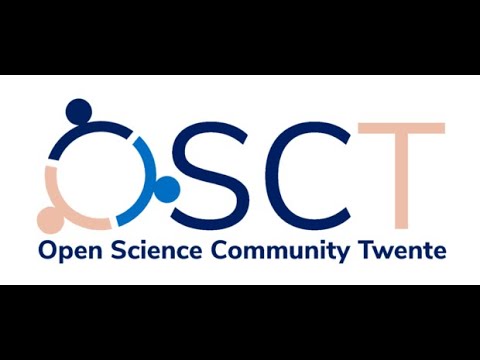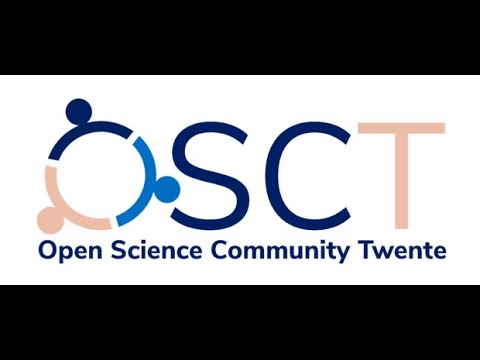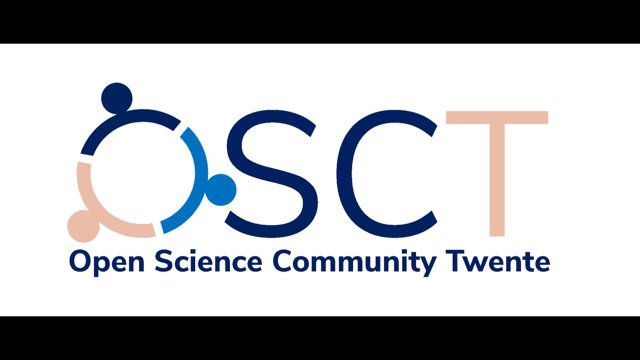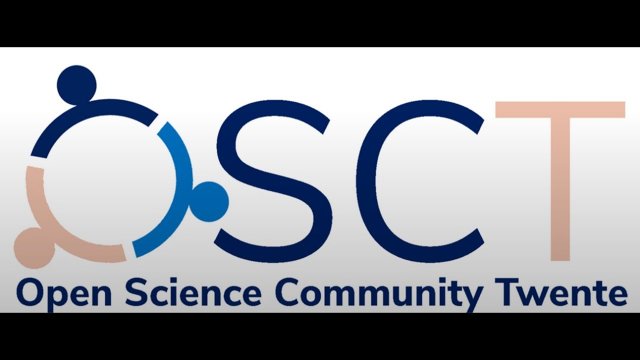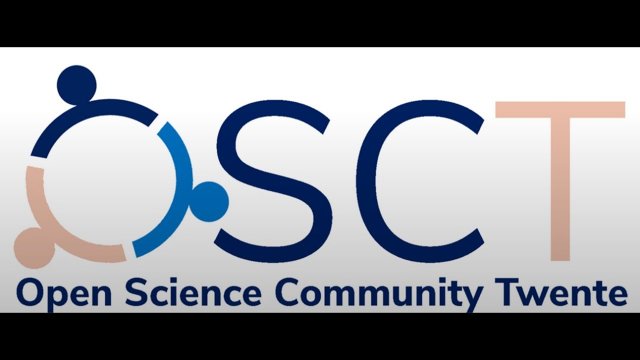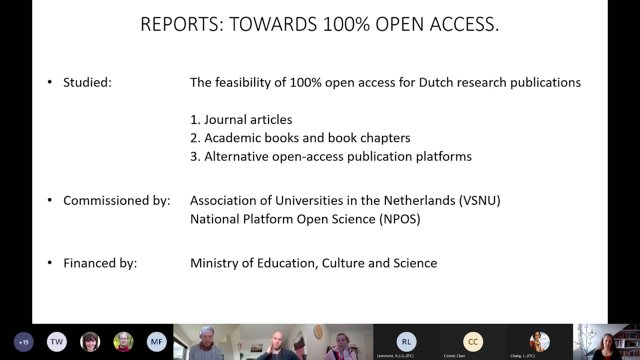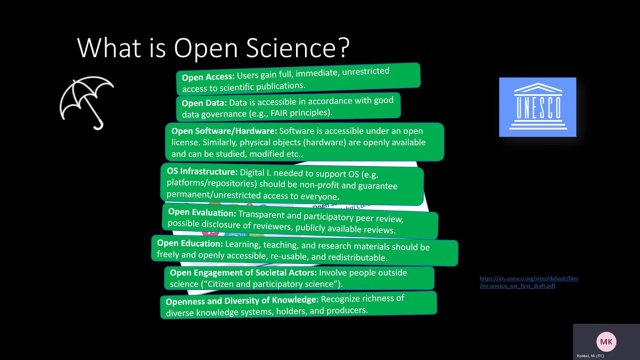Citizen science meets open science
When: 27th October 2022 at 14:00
Speaker: Frank Ostermann (UT-ITC) & Lieke Heesink (UT-EEMCS)
Abstract: The talk of Frank Ostermann will be about citizen science and open science, and in particular about challenges and opportunities, with the specific focus on geographic data or information and geospatial analysis, which are relevant for a wide range of scientific disciplines.
The talk of Lieke Heesink will elaborate on the views of participants involved in citizen science projects regarding data sharing after the project.
Slides (Frank); Slides (Lieke); Recording
Make your data FAIR and Research Data Management Support at the UT
When: 29th September 2022 at 14:00
Speaker: Marion Wittenberg (DANS) & Zafer Öztürk (UT-LISA)
Abstract: The talk of Marion Wittenberg will be about sharing research data. How and where can you share your data. Why is metadata important, what are persistent Identifiers and which are adequate services you can use.
The talk of Zafer Öztürk will shortly introduce the support, services, and tools available at University of Twente in terms of research data management.
Slides (Marion); Slides (Zafer), Recording
National Programme Open Science (NPOS) Ambition Document
When: 19th May 2022 at 14:00.
Abstract: The Dutch National Programme Open Science (NPOS) aims to coordinate the transition to Open Science in the Netherlands and bring together national stakeholders. They recently released an updated version of their “NPOS Ambition Document” that was widely discussed in an open consultation among 78 institutions, networks, communities, and individuals. The goal of the programme is to facilitate all national stakeholders to collaborate in this transition from science ‘as is’ to science ‘as will be’, in alignment with international initiatives. As you can imagine, such a programme might also affect your and UT’s way of working. For this reason, we will dedicate the next Open Science Kitchen event to the NPOS Ambition Document. We will provide you with a brief presentation of the key points and then spent most of the time with a discussion in which we hope for your input. We would like know from you, for example, whether there is a conflict between the implementation of the NPOS Ambition Document and your daily work. Where do you see difficulties regarding the implementation and what do you need to overcome the obstacles? This event is a great opportunity to kick-off the implementation of the NPOS document at the UT while at the same raise concerns. Consequently, we hope for a large attendance and a lively discussion.
DCC Thematic Session on AREDA: Curious to know why AREDA is the archive that you would like to use?
When: 31st March, 2022 from 16:00-17:00.
4TU.ResearchData repositories and communities
4TU.ResearchData will present an overview of their repository services and community for FAIR data. Part one of the presentation provides more detailed information about the technical infrastructure to support FAIR data. Part two provides information about the community (human infrastructure) around the data repository.
Who: This event is for researchers (PhD candidates, postdocs and assistant professors/research associates) and data support professionals who want to learn about technical repository features and community support for publishing data and software code.
About 4TU.ResearchData: As an international data repository for science, engineering and design, 4TU.ResearchData's services include curation, sharing, long-term access and preservation of research datasets. These services are available to anyone around the world. In addition, 4TU.ResearchData also offers training and resources to researchers to support them in making research data findable, accessible, interoperable and reproducible (FAIR).
Open Education in transition. Social movement or evidence-based research domain?
Abstract: The field of open education has its roots in distance education and has developed over the years specific types of activities namely the publication of Open Educational Resources (OER) and the development of massive open online courses (MOOCs). While more and more higher education institutions are opening up their educational offer for learners outside of the institution, organisational implications of these activities are not well researched. In this talk I will provide an overview about the challenges and opportunities of open education and I will build a connection to related fields like open access and open science.
Reproducibility in the Geosciences
Abstract: Reproducibility is an important component of Open Science. However, in the past two decades, several scientific disciplines have faced the problem of irreproducible studies and findings. This reproducibility crisis has led to multiple initiatives and activities to make computational research more reproducible. This talk gives an overview of the state of play in the geosciences and related reproducibility initiatives from the past 5 years. The findings and recommendations are open for debate, but are relevant and interesting for all disciplines that rely on data analysis and computational methods.
Rewards and Recognition in the Context of Open Science
Abstract: Many scholars aim to make the next step in their academic career. The decision about hiring, promotion, and tenure is often based on quantitative metrics, such as the Journal Impact Factor (JIF) and h-index. Such citation-based indices are perceived by many as concrete and clear evaluation criteria. Still, the Utrecht University abandoned the JIF and would like to focus more on Open Science-based evaluation frameworks, such as the San Francisco Declaration of Research Assessment (DORA). But what is wrong with using citations as an evaluation criterion? What are the limitations of the JIF and h-index that make some universities refrain from these metrics? In this talk, I would like to overview the limitations quantitative metrics have and what the alternatives are. Also, I would like to pay attention to the discussion between proponents and opponents that followed Utrecht’s decision. As always, for the second part of the event, the floor will be yours. What is your opinion? Can you imagine that your department or university makes a similar move?
Engaging society: How public outreach meets Open Science
Abstract: The work of scientists is sometimes perceived as a black box and often people will only hear about new discoveries and exciting prospects in the news which can result in them losing interest in science. However, we need the public to support what we do because they all contribute to our work. Showing the public who scientists are and what they are working on also fits perfectly within the Open Science movement. It is essential to engage people, for example, by visiting schools to give interesting lectures and demonstrations, inviting school classes for a hands-on day in the lab, and organizing open days to offer people an opportunity to get to know the scientists and science behind university or industry doors. Such outreach activities are a tremendous help in showing that science is fun and fascinating and why so much effort is put into science every day.
Open Reproducible Research – Challenges and Opportunities
Abstract: Reproducibility is an essential Open Science practice and consequently a cornerstone of computational research. Publishing the code and the data underlying the results in the paper allows reviewers to verify the results, readers to understand the finding in more detail, and other researchers to build upon the work. Nevertheless, for several cultural and technical reasons, publishing open and reproducible results is challenging to realize. This presentation will introduce basic concepts and issues around reproducibility. It will then provide an overview of existing tools that help researchers publish open reproducible research and which aspects users should consider to select the right tool for the own work.
Open Access Diamond Journals study
Bianca Kramer and Jeroen Bosman from Utrecht University Library talked about their Open Access Diamond Journals study.
Abstract: Open access does not necessarily mean authors are asked to pay APCs to publish in a journal. So-called diamond open access journals are free to read and publish in, and therefore accessible to all researchers, also when they are not affiliated with a rich university. How is that possible? And which journals use such a model? Are they comparable to APC-charging journals? Are they sustainable? And how can they be supported if diamond is the way to go to provide sustainable, fair and global open access? Bianca Kramer and Jeroen Bosman from Utrecht University Library were part of a large consortium executing a study into diamond open access journals. They will tell you all about it and are of course open to questions and discussion. If you wish to take a look at the study outcomes in advance, please take a look. Warning: this is an extensive report in 2 parts - findings and recommendations - but: there is an executive summary.
Publishing 100% Open Access. How can we help you?
The National Program Open Science (NPOS) and the association of universities in the Netherlands (VSNU) just released reports on the feasibility of 100% open access in the Netherlands. Unfortunately, nearly all communication about this is only available in Dutch, but the management summaries are available in English. Long story short: Things need to change. In this Open Science Kitchen, there will be a presentation by Nicole Loorbach, one of the UT specialists on Open Access. She’ll give a short overview of how you can already publish your work open access as a UT author and how the UT will give open access a boost this year. A boost is necessary, because the UT set itself the objective of making 100% open-access publishing the norm by 2023 (Shaping 2030, p.22) and we’re currently publishing about 75% of our work open access. Nicole will also present the major findings of the NPOS/VSNU reports. These reports will be the starting point for a new national strategy and for new open-access policies of universities in the Netherlands.
As a UT author, you know best what needs to change nationally and at the UT for you to publish all your work open access. That’s why we’d like to spend most of the event discussing:
- What are your experiences with open-access publishing?
- What is holding you back now to publish all your work open access?
- If anything was possible, what would open-access publishing look like?
- What would really make a difference for you?
- What can the UT do to help you publish all your work open access?
- What can be organized nationally, for all universities, to help you publish all your work open access?
Preregistration and Registered Reports
The February edition of the Open Science Kitchen event was dedicated to "The Benefits and Limitations of Preregistration and Registered Reports". Why this topic? Some of you might have attended the last Open Science Kitchen event in January, where we discussed potential issues. Preregistration was the first item on the list, so apparently, there is some demand for it. It is also a relatively new concept and not very common, for example, in the geoscience and social sciences. The goal of the event was consequently to raise awareness for the two ideas.
Open Science Community Kick-off
On the 28th January, we had our first OSCT event. More than 30 participants attended the virtual kick-off session. We discussed what Open Science Communities are, how people can join and contribute, and which topics the participants are interested in. Curious? Check the SLIDES or the recording below.

